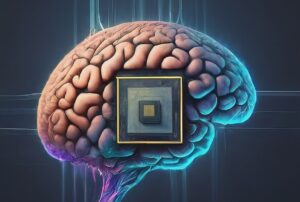
AI-Powered Scientific Discovery
AI-Powered Scientific Discovery: Revolutionizing Research
AI is like a supercharged engine driving scientific research into new realms of possibility. By processing vast amounts of data at lightning speed, AI enables scientists to uncover patterns and insights that were previously out of reach. Imagine having a personal assistant who can sift through millions of research papers, identify the most relevant ones, and suggest new avenues for exploration. That’s the power of AI in science.
The Role of AI in Modern Research
AI’s role in modern research is akin to having a highly skilled team of researchers working 24/7 without fatigue. It can automate repetitive tasks, allowing scientists to focus on more creative and strategic aspects of their work. From predicting outcomes to identifying new compounds, AI is a versatile tool that enhances the research process.
AI in Data Analysis
Data is the lifeblood of scientific research, and Artificial intelligence is the heart that pumps this data efficiently through the research body. AI algorithms can analyze complex datasets, identify trends, and make predictions with remarkable accuracy. For example, in genomics, AI helps in understanding genetic variations and their implications for diseases.
Machine Learning Models in Science
Machine learning (ML) models are a subset of AI that learn from data to make decisions or predictions. These models are like students who get better with more practice. In scientific research, ML models can predict climate changes, simulate molecular behavior, and even assist in the discovery of new drugs.
AI in Medicine and Healthcare
The healthcare industry is witnessing a revolution with Artificial intelligence. From diagnosing diseases to personalized medicine, AI-powered tools are enhancing patient care. AI algorithms can analyze medical images, predict patient outcomes, and even assist in surgeries. This not only improves accuracy but also speeds up the process, saving lives.
AI in Environmental Science
Environmental science benefits greatly from AI. AI models can predict weather patterns, monitor climate change, and help in the conservation of biodiversity. By analyzing satellite images and environmental data, AI provides insights that are crucial for sustainable development and disaster management.
AI in Physics and Astronomy
AI is a game-changer in physics and astronomy. It helps in analyzing vast amounts of data from telescopes and particle accelerators, leading to discoveries about the universe’s fundamental properties. AI has been instrumental in identifying exoplanets, understanding black holes, and even in the quest for dark matter.
The Impact of AI on Social Sciences
In social sciences, Artificial intelligence helps analyze human behavior, social interactions, and societal trends. By processing data from social media, surveys, and other sources, AI provides insights into public opinion, economic trends, and even political movements. This helps policymakers make informed decisions.
Ethical Considerations in AI Research
As powerful as AI is, it also raises ethical concerns. Issues like data privacy, bias in AI algorithms, and the potential for job displacement need to be addressed. Ethical AI research ensures that the benefits of AI are maximized while minimizing potential harms.
The Future of AI in Scientific Discovery
The future of AI in scientific discovery is bright. With advancements in technology, AI will become even more integrated into research processes. We can expect AI to aid in solving some of the world’s most pressing problems, from curing diseases to addressing climate change.
Challenges and Limitations of AI
Despite its potential, AI has its challenges and limitations. It requires vast amounts of data, computational power, and specialized knowledge to develop and maintain Artificial intelligence systems. Moreover, the risk of over-reliance on AI and the loss of human touch in research are concerns that need to be balanced.
Case Studies of AI in Scientific Breakthroughs
Numerous case studies highlight the impact of Artificial intelligence in scientific breakthroughs. For instance, AI played a crucial role in the development of COVID-19 vaccines by analyzing viral protein structures and predicting their behavior. Another example is the use of AI in discovering new materials with desirable properties.
AI and Interdisciplinary Research
AI fosters interdisciplinary research by breaking down silos between different scientific fields. It facilitates collaboration among biologists, chemists, physicists, and other researchers, leading to comprehensive solutions to complex problems. This cross-pollination of ideas is crucial for innovation.
AI Tools and Platforms for Researchers
Several AI tools and platforms are available to researchers. These include TensorFlow, PyTorch, and IBM Watson, which offer robust frameworks for developing and deploying AI models. Such tools make it easier for researchers to leverage AI in their work, even without extensive programming knowledge.
AI-powered scientific discovery is not just a futuristic concept; it’s happening now. By augmenting human intelligence with machine capabilities, AI is unlocking new frontiers in research and innovation. The journey of scientific discovery is more exciting than ever, thanks to the power of AI.
FAQs
1. How does AI contribute to scientific discovery?
AI contributes by analyzing large datasets, identifying patterns, and making predictions, thereby accelerating the research process.
2. Can AI replace human scientists?
No, AI cannot replace human scientists. It complements their work by handling repetitive tasks and providing insights, allowing scientists to focus on creative aspects.
3. What are some ethical concerns with AI in research?
Ethical concerns include data privacy, algorithmic bias, and the potential for job displacement. Addressing these issues is crucial for responsible AI use.
4. How is AI used in medicine?
AI is used in diagnosing diseases, analyzing medical images, predicting patient outcomes, and assisting in surgeries, improving accuracy and efficiency in healthcare.
5. What is the future of AI in scientific discovery?
The future is promising, with AI expected to play a crucial role in solving global challenges, enhancing interdisciplinary research, and driving innovation across fields.





